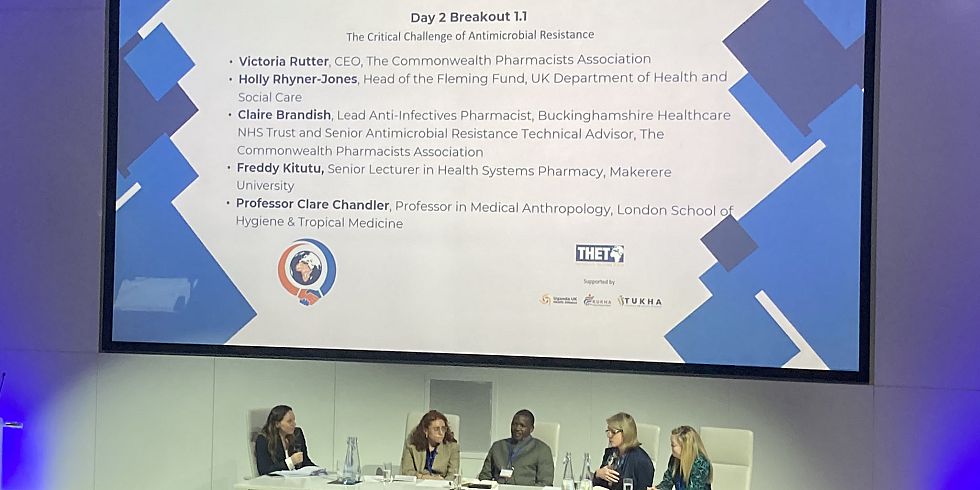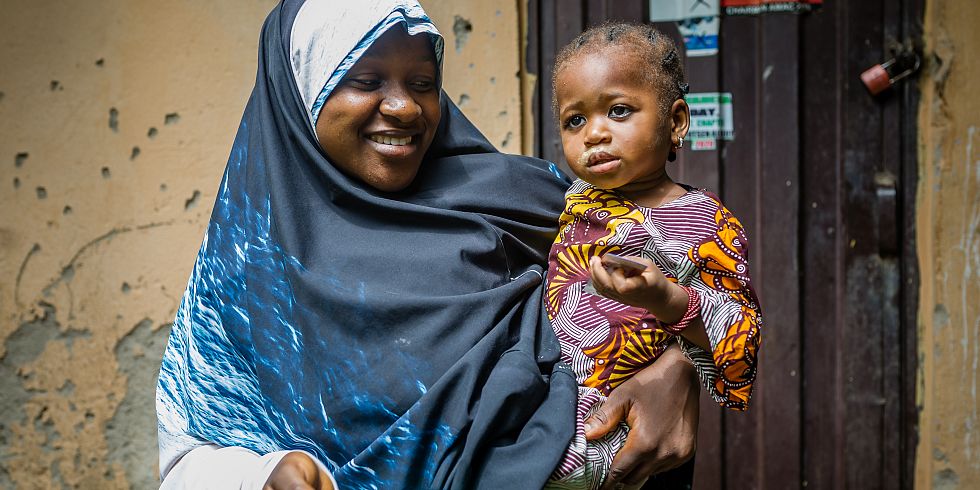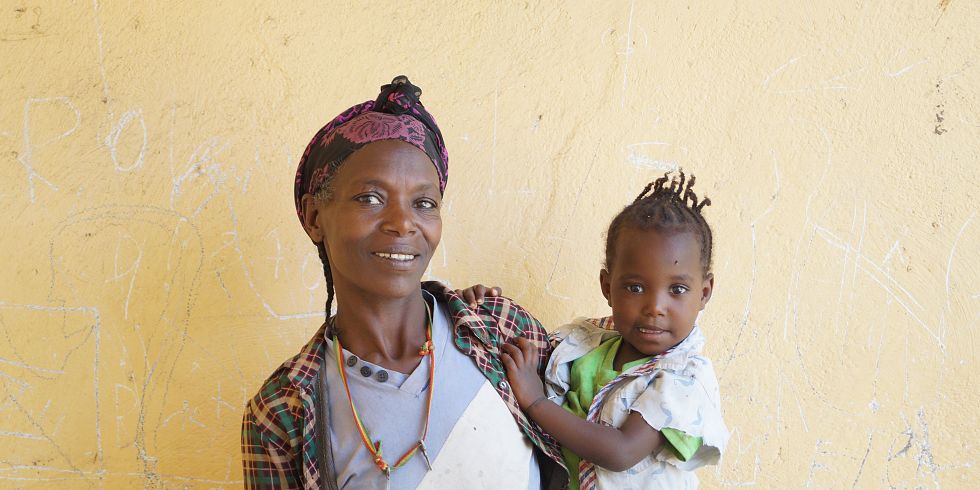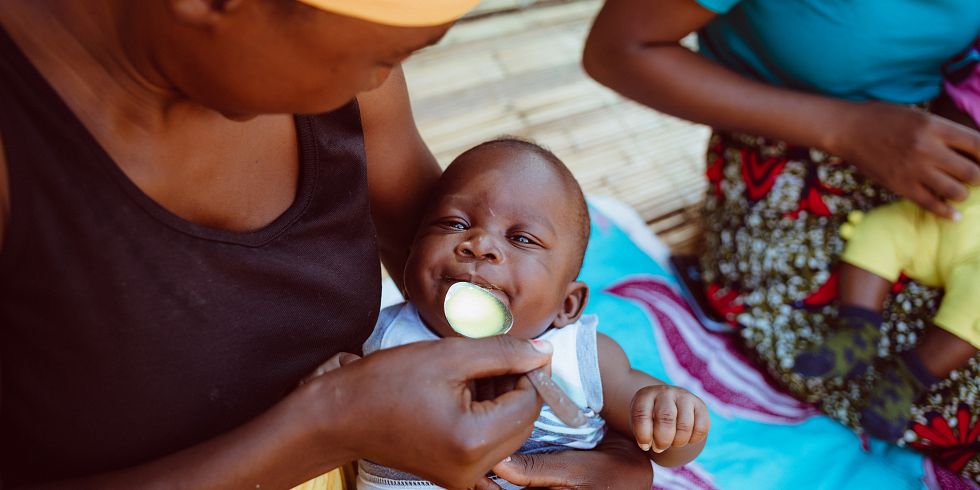Latest News
34 Result(s) found:
Reset all search optionsCurrent search filters ( results match ALL terms):Case management
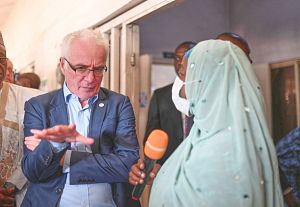
State visit shines international spotlight on Kano’s malaria response
2 October 2023Kano, one of Nigeria’s most populous states, was put under the spotlight as state officials hosted leaders from the Global Fund to Fight AIDS, Tuberculosis and Malaria (the Global Fund), U.S. President's Emergency Plan for A…
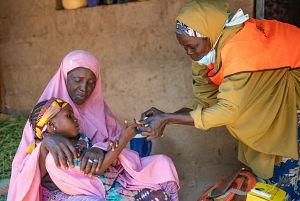
UN High level meeting puts spotlight on essential investments for universal health coverage
21 September 2023Today in New York during the United Nation (UN)’s 78th General Assembly, a High-level meeting (UN HLM) on universal health coverage (UHC) convened nations and stakeholders with a shared vision for reinvigorating progress tow…
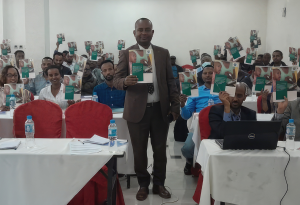
Ethiopia marks another milestone in its pneumonia and diarrhoea reduction plans
13 June 2023Earlier this month, an action plan to strengthen strategies for child survival, focused on the integrated management of childhood illnesses (IMNCI), was launched in Ethiopia, at an event attended by representatives from the region…
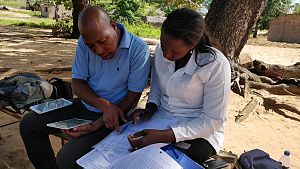
Assessing the effectiveness of a community digital health platform in Mozambique
26 July 2022In a new learning paper published today, Malaria Consortium reviews the effectiveness of upSCALE, a community digital health platform implemented in Mozambique. Over a four-year period, upSCALE proved to be a supportive, agile pla…
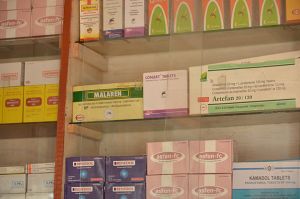
Access to anti-malarials must be synchronised with access to diagnostic tests to avoid malaria medicine misuse in Nigeria
6 July 2022The supply of rapid diagnostic tests (RDTs) and artemisinin-based combination therapy (ACT) medicines needs to be synchronised to prevent high levels of ACT misuse in Nigeria, a new study has found. Malaria Consortium researchers …
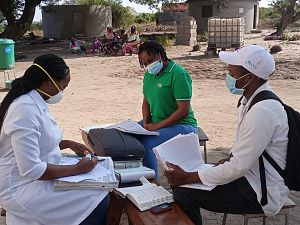
American Journal of Tropical Medicine and Hygiene articles explore effective malaria surveillance systems
26 April 2022The first of three malaria surveillance supplemental issues in the American Journal of Tropical Medicine and Hygiene (AJTMH) was published yesterday on World Malaria Day, exploring the importance of responsive surveillance –…
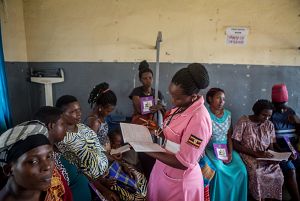
New project to boost malaria burden reduction gains in Uganda
26 January 2022To build on and boost gains made in Uganda’s mission to eradicate malaria, Malaria Consortium is implementing a new project – Supporting Uganda’s Malaria Reduction and Elimination Strategy (SUMRES) – over t…
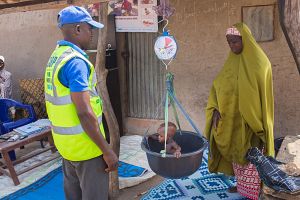
Non-medical health workers use simplified tools to treat malnutrition in children under five in rural Nigeria
5 January 2022Community health workers in rural Nigeria without formal medical education can successfully identify, treat and refer cases of malnutrition in children under five when using simplified tools and having received training, a study c…
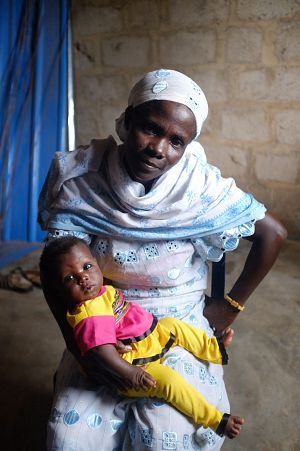
Malaria Consortium begins distribution of over seven million LLINs in Nigeria
8 December 2021Malaria Consortium has today begun the mass distribution of over seven million long-lasting insecticide treated nets (LLINs) to help reduce the burden of malaria in Nigeria. Two LLIN campaigns will distribute 3.3 million LLINs to …
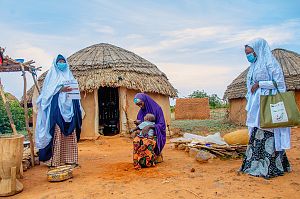
Exciting potential for increased protection against malaria for young children in combining malaria vaccine with seasonal malaria chemoprevention
27 August 2021A seminal paper, published on 25 August in the New England Journal of Medicine, details results from a three-year trial to test the efficacy of the RTS,S/AS01 E malaria vaccine in combi…
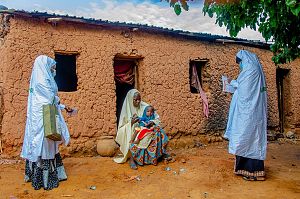
Malaria Consortium to support Nigeria’s National Malaria Elimination Programme to reduce malaria burden to pre-elimination by 2025
18 August 2021Malaria Consortium is supporting Nigeria’s National Malaria Elimination Programme to deliver malaria interventions to help the country reach its goal of reducing the malaria burden to pre-elimination levels by 2025 - equatin…
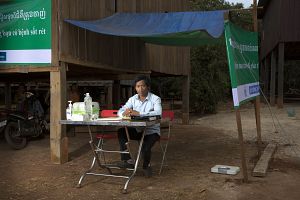
Community health workers are key to successful malaria elimination projects in Cambodia during COVID-19
18 May 2021Latest Malaria Consortium research published in Global Health: Science and Practice outlines how mobile malaria workers in Cambodia who are culturally embedded and trusted by communities contributed to a substantial increase in th…
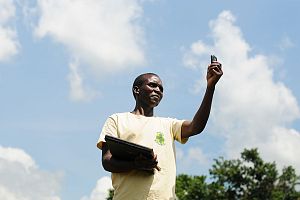
Digital health at the forefront of the community response in Mozambique amidst COVID-19 pandemic
23 June 2020Malaria Consortium is rapidly adapting its existing digital platform, upSCALE, to better support health workers’ ability to respond to the COVID-19 pandemic in Mozambique. The changes include a dedicated education module, ta…

Malaria Consortium outlines nine key approaches to help mitigate climate-related threats to health
5 June 2020Malaria Consortium is pleased to announce the publication of an opinion paper exploring the impact climate change could have on global health.
This paper, Adapting to minimise the health impacts of climatic change, outlines some …
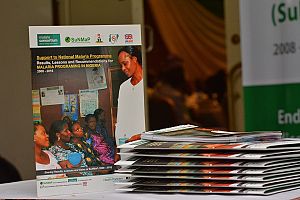
Parliamentary report acknowledges success of Malaria Consortium’s SuNMaP Nigeria programme
28 July 2016Malaria Consortium welcomes the findings of a new report by the UK Parliament’s International Development Committee (IDC) into the effectiveness of the UK Department for International Development’s (DFID) programmes in…
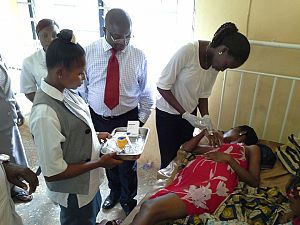
Success treating severe malaria in Nigeria
15 June 2016Abuja, Nigeria – “Mortality rates in those states where we ran our severe malaria project fell from 25 to just one percent. These results are, in part, due to the project and show that the use of injectable artesunate …
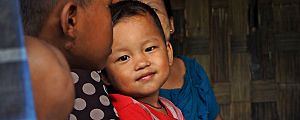
Supporting dengue prevention and control in Myanmar
24 May 2016Dengue is a rapidly growing viral infection spread by the same species of mosquito as the Zika virus. Prior to 1970, only nine countries had witnessed epidemics – now that number stands at over 100. Typically found in tropic…
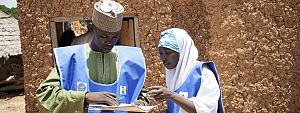
Eight-year programme contributes to significant malaria decrease in Nigeria
18 February 2016Abuja, 18 February 2016 - “I am inspired by the efforts of SuNMaP and its partners. There is no question that SuNMaP has had a huge impact upon malaria in Nigeria.”
Dr Ngozi Azodoh, Assistant Director - MDGs and Resou…
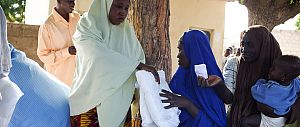
Support to National Malaria Programme ends with dissemination event
17 February 2016Abuja, 16 February 2016 - SuNMaP, the Support to National Malaria Programme, has come to an end after eight years of working to improve Nigeria’s health system. Today – on the first of a two-day event in Abuja, Nigeria…
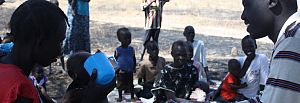
Universal health coverage: Leaving no one behind
15 December 2015An estimated 400 million people across the world do not have access to essential basic health services and every year, 100 million of these people fall into poverty as they struggle to pay for healthcare.
Malaria is one of the le…

World Malaria Day around the world - in pictures
30 April 2015World Malaria Day is an international event that brings people together from around the globe to unite in the fight against malaria. Malaria Consortium has offices in Africa and Asia which commemorate April 25th by holding a varie…

The people behind Operation Health
8 April 2015Operation Health – Comic Relief’s initiative to refurbish a health facility with support from Malaria Consortium – has had widespread participation from the local community in Iyolwa, eastern Uganda. Check o…

Malaria Consortium's 'Stop Malaria Project' ends with close-out event
24 March 2015This month marked the completion of the Stop Malaria Project, which had been running across Uganda for six years.
Funded by USAID/President’s Malaria Initiative (PMI) and led by Johns Hopkins University Center for Communica…
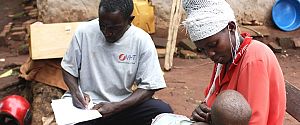
New Malaria Consortium project will expand access to iCCM services across mid-western Uganda
16 March 2015Malaria Consortium is pleased to announce that Comic Relief has awarded us a grant to run a new project in midwestern Uganda focusing on reducing deaths from pneumonia, diarrhoea and malaria in children under five, as well as…
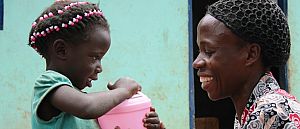
Ugandan Pioneer Project unveils achievements and charts the way forward
26 February 201525 February – With 100 percent of its population at risk of malaria and 15,632 deaths from malaria occurring last year, Uganda faces many challenges. Chief among these are high malaria transmission, key health system challen…

Pioneer Project - in pictures
25 February 2015Malaria Consortium’s Pioneer project was a five-year initiative in Uganda that reduced the malaria burden in the country using a variety of effective methods. Take a look at the gallery below to learn more about t…
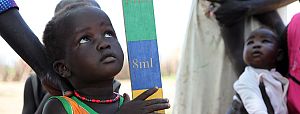
Report calls for sustained effort to defeat NTDs
24 February 2015Amid signs of progress in the fight against NTDs, the UK Coalition against NTDs calls for the momentum to be sustained and investment increased
Today the All-Party Parliamentary Group on Malaria and Neglected Tropical Disease (AP…
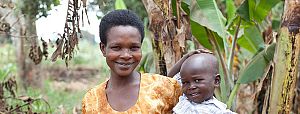
Malaria Consortium supports Comic Relief's Operation Health campaign
29 January 2015Malaria Consortium is delighted to be part of Comic Relief’s main fundraising campaign for Red Nose Day this year - Operation Health, involving a major renovation of a dilapidated rural clinic in Uganda.
International healt…
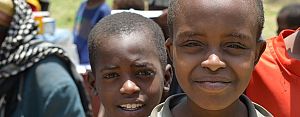
Scale-up of effective malaria control dramatically reduces deaths
9 December 2014The World Malaria Report 2014 shares the good news, but warns the fight is far from over
The World Malaria Report 2014, released today by the World Health Organization, was launched in the UK Parliament in the presence of the Duk…

Malaria Consortium at the Joint International Tropical Medicine Meeting 2014
4 December 2014Malaria Consortium gave a number of presentations at the Joint International Tropical Medicine Meeting (JITMM 2014) and the 8th seminar on Food- and Water-borne Parasitic Zoonoses (FBPZ8) in Bangkok from December 2-4.
This year&r…
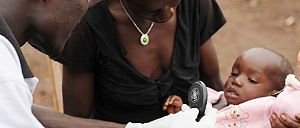
Pneumonia prevention and care available for every child is key to defeat world's #1 infectious killer of children
11 November 2014Global Coalition Against Child Pneumonia Press Release
Pneumonia prevention and care available for every child is key to defeat world’s #1 infectious killer of childrenOn the sixth annual World Pneumonia Day, the Global…
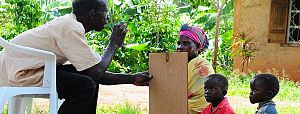
InSCALE: Advocating for increased iCCM coverage in Uganda
23 September 2014Three quarters of deaths in children under five are caused by malaria, diarrhoea and pneumonia often because access to quality health care is hardest in areas where the need is greatest. Uganda has one of the highest infant mortal…

Fake medicines and malaria
18 September 2014In 2012, the World Health Organization (WHO) estimated that there were 207 million cases of malaria, which killed approximately 627,000 people – mostly children in sub-Saharan Africa.
The best weapon for treating malaria is…
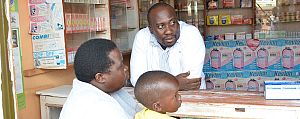
Uganda launches test kits project to boost malaria treatment in private health sector
16 September 201416 September - Malaria Consortium, in partnership with the Ministry of Health and the National Drug Authority, WHO and other NGOs, has launched a $6.2 million (about £10.1 million) project to create a private sector market f…
